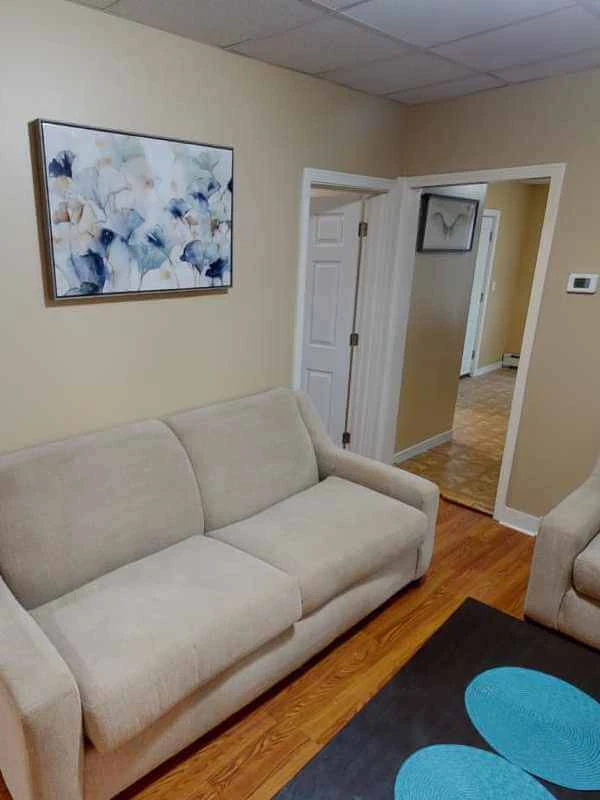
Unwinding after work can help you leave behind the stresses of the workday and relax. Let these tips help you create rituals that support your transition from the pressures of work to relaxation. According to the American Institute of Stress, job pressure and money are the top causes of stress in America, with 61 percent of people reporting that work is their main source of stress. If you’re one of the millions of people who spend their evening hours untangling the tensions of the day, then you need to find a few simple ways to shed the stress and get back to a clear, happy state of mind.
tips for handling stress at work in the moment
While it’s not possible to eliminate all stress from your life, you can learn to cope with it and manage your reactions to stressful situations. You may start by taking a few minutes each day to focus on being present and enjoying a simple activity — a short walk around the park or appreciating a meal at your desk. Deep breathing can reduce anxiety and help people cope with stressful tasks (Varvogli & Darviri, 2011). Diaphragmatic breathing (or “belly breathing”) involves actively breathing into your diaphragm or abdomen, as opposed to the chest. When this happens, nonessential activities like digestion are put on standby (Schneiderman et al., 2005).
Long-Term Stress Relief Strategies

If you are new to meditation or do not have the time, these apps provide sessions that are shorter than 10 minutes. The progress-tracking and engaging interface of gamified mindfulness apps make following up on your daily meditation easier. Apps such as One Deep Breath, Headspace, and Atom use multiple https://ecosoberhouse.com/article/is-it-possible-to-get-sober-without-aa/ techniques to help you reach a calmer mental state. One Deep Breath is an app that uses unique breathing patterns for managing stress. Headspace, on the other hand, uses calming sounds and guided sessions for relaxation. Meanwhile, Theragun Pro is suitable for muscle relaxation throughout the body.
Create a Soothing Home Environment for Yourself

Taking a moment out of your day just to breathe is an effective way to stop momentary stress in its tracks. Guided imagery practices activate the senses and conjure memories or images of serene locations. This positive mental imagery induces a peaceful state of mind. To combat the negative sleep–stress cycle, improving sleep hygiene habits is a good start.
How to prevent and avoid work stress: 11 strategies
- There are many different forms of meditation to try–each one is unique and brings its own appeal.
- “All of which can lead to worsening mental and physical health,” he says.
- Thus, having a fixed sleep schedule is essential for post-work relaxation.
- For example, you can focus on your breath for 1 minute and then mentally repeat a positive affirmation for 3 minutes.
- “You don’t want your pet overly sedate or under sedate on the day where you actually need the medication to work.”
If you can’t exercise regularly, try to stretch in your sitting spot, take walks before, during, or after work, or go up and down the stairs if you can. Research from 2017 found that exercise can affect the parts of the brain responsible for regulating your mood and coping with stress. Although moving around or leaving the place isn’t possible in every work environment, consider ways you can take a mental break.
- Veterinarians say pets should be kept inside during fireworks displays, with curtains and blinds closed.
- Even if you’re not an athlete or you’re out of shape, exercise can still be a good stress reliever.
- However, as with job stress venting in general, focusing too much on the stress created by difficult co-workers can rob us of the joy of our non-work lives.
- Work-related stress can lead to decreased energy levels, difficulties performing, and tense relationships.
- Relaxation isn’t only about peace of mind or enjoying a hobby.

Keeping a journal to track your stress triggers and reactions may help. You can include people, places, and events that cause you a physical, mental, or emotional response. Experiencing work strain is unavoidable — even if you love what you do. You can take actionable steps to keep job stress at a manageable level. Even if you love your job, the workplace can still be a source of stress.

It reduces the stress hormone norepinephrine and can produce a sense of relaxation. Just focusing on your breath or changing the way you breathe can make a big difference to your overall stress level. Breathing techniques can calm your body and your brain in just a few minutes.
About Mayo Clinic
It can boost the production of the brain’s feel-good neurotransmitters to improve your mood and decrease feelings of stress. Physical activity can help you mentally disconnect from work, providing a change of scenery and a new focus for your mind. Whether a vigorous workout or a gentle walk, find an exercise you enjoy to gain an effective tool for unwinding after work. In small doses, stress can be beneficial, helping us stay focused and alert. However, prolonged stress can be harmful, affecting our physical health, leading to issues like headaches, insomnia, and high blood pressure. It can also impact our mental health, contributing to anxiety, depression, and irritability.
- Reducing your workload could be key to helping you get through the day feeling better.
- If you’re overwhelmed at work, it might be wise to forgo extra responsibility if possible.
- Before the holiday, it can be helpful to get pets used to the types of noises they may encounter.
- This can prevent stress from getting out of control and lowering your quality of life.
- Harsh self-criticism, self-doubt, and catastrophic predictions aren’t helpful.
When to seek professional help
Take only what works for you, as we will have our unique recipes for balance, and please feel free to add additional ideas and suggestions in the comments. Finding the best stress relief strategies may take some experimenting. Keep in mind that there are how to destress after work many different ways to get more physical activity in your day too. So it’s important to create a lifestyle that will help you ward off stress and deal with challenges in a healthy way. The best news is that no one around you will know you’re doing them.
